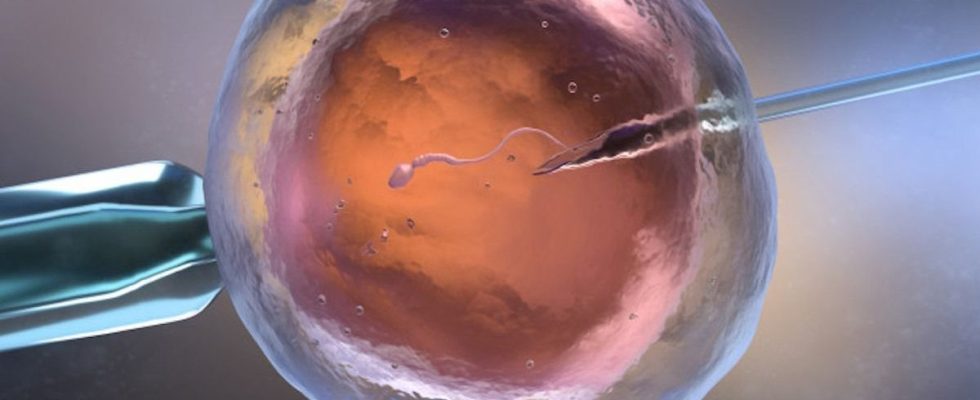Published on
Updated
Reading 3 min.
At 37, Nina has not yet found the father of her future children, and has just had 15 of her eggs frozen to preserve her chances of a future pregnancy. Like her, more than 11,000 women have asked to benefit from this new possibility introduced two years ago, but waiting times are lengthening.
“It’s a security, but I almost didn’t have the right to it“, explains this psychologist from Lyon (who prefers not to give her name), and who says she “had incredible luck” because she managed to have her eggs collected and frozen in about four months… a process completed in two weeks before the fateful date of his 37th birthday, the age limit set by law.
To do this, she had to go several times to a specialized center located hundreds of kilometers from her home, the only one that was willing to welcome her on time. Before August 2021, this procedure was only permitted for medical reasons – for example, before cancer treatment or due to an illness that could impair a patient’s fertility.
Freeze your eggs as a precaution
From now on, the medical reason is no longer necessary: women can ask to freeze their eggs because they are worried about becoming less fertile with the passing years, and they want to preserve their chances of falling pregnant later, via medically assisted procreation (MAP).
The law has set a double age barrier: egg retrieval is possible between 29 and 37 years old. Then, the woman will have until she is 45 years old maximum to “thaw” her gametes and benefit from assisted reproduction.
In two years, the success of this procedure has been dazzling: since the law came into force, nearly 11,500 women have requested “ovocyte self-preservation”, but only 4,800 have started the process and 1,778 have benefited from at least one conservation in 2022, according to figures recently communicated by the government.
“We found ourselves faced with a wave of requests that we did not expect”, recognizes Dr Pauline Jaeger, from the reproductive medicine department at the Femme Mère Enfant hospital in Lyon. Most patients are “singles who see the biological clock moving forward, and who want to alleviate social pressure” and the injunction to have children, explains this specialist.
“Traffic jams in public centers”
Logically, the sharp increase in demand quickly led to a congestion of the thirty specialized public centers authorized to carry out this procedure in France. So much so that some women, who want to embark on the journey a few months before their 37th birthday, must become disillusioned: given waiting times of up to two years, they are told that for them, it is already too late.
This is what happened to Mélanie Trivalet, 38 years old: because she did not take steps in France.at least six months“Before the age limit, this employee of a humanitarian NGO finally had to decide to go to Spain and pay 3,000 euros to have her eggs frozen. “The door was closed to me in a pretty terrible way,” exclaims the young woman, who regrets a lack of information on the real deadlines to be taken into consideration.
NO to diets, YES to WW!
Tomorrow, will this be possible in private centers?
This “traffic jam” should have been better anticipated by the government, believes Virginie Rio, founder of the Bamp! association. bringing together and advising patients engaged in medically assisted procreation (AMP) journeys. For this activist, private ART centers should have been authorized to practice self-preservation without medical reasons, a possibility ruled out by the legislator for fear of “commodification of women’s bodies”, whereas “it is only ‘a fantasy’, according to her.
In the short term, however, the government should evolve on this point: “new centers” will now be able to practice this activity, the Minister responsible for health professions, Agnès Firmin-Le Bodo, announced on August 2.
As for Nina, burned by the stressful process she has just experienced, she now wants to be cautious, and anticipates what happens next: although “not yet fully decided” to have a child alone, as a precaution she has taken steps to of a PMA. Which, given the waiting times, could only take place in two years.
